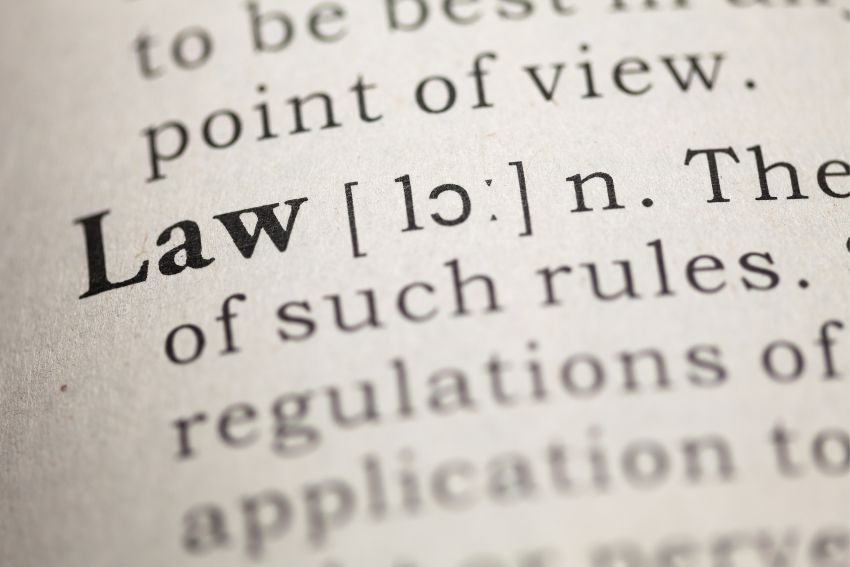What is the National Curriculum? Your Complete Guide
What is the National Curriculum?- Simply put, It serves as a framework to ensure all students receive a high-quality education The National Curriculum sets out clear learning objectives for various school subjects and organises them into different key stages based on school years and ages in UK. Its purpose is to create consistency in what students learn, no matter which school they attend.
So, what is the Purpose of the National Curriculum? The National Curriculum aims to provide every student with the same opportunities to learn and achieve. By setting standardised goals, it ensures equality in education across schools. Teachers use this framework to plan lessons that align with the students’ key stages, making it easier to track progress.
As a result, this consistency helps prepare students for the next phase of their education, ensuring they build essential skills at the right time.

What is the National Curriculum? History and Developement
Firstly, to truly understand what is the National Curriculum for England and how it developed, it’s essential to know its history. In 1988, the government introduced the National Curriculum to ensure consistent educational standards across all schools in England.
Then, over the years, the National Curriculum framework has evolved to reflect changing educational priorities. Key milestones include the introduction of key stages to divide learning into manageable phases and updates to the subjects covered. For instance, emphasis on STEM (Science, Technology, Engineering, and Mathematics) subjects has grown significantly to prepare students for modern challenges.
Recent changes to the National Curriculum include more focus on problem-solving in mathematics and practical experiments in science. These updates aim to engage students better and make learning more relevant.
Understanding the Structure of the National Curriculum
So, to answer what is the national curriculum and how it is structured, it’s important to explore its organisation. The National Curriculum UK is divided into key stages, which group students by age and learning milestones. These stages ensure a clear progression in education as students advance through school.
What are the Four Key Stages in the National Curriculum UK?
| Key Stage | Ages (Years) | School Years | Focus Areas |
| Key Stage 1 | 5-7 | Year 1–2 | Basic Literacy, Numeracy, Introduction to Science and Foundation Subjects |
| Key Stage 2 | 7-11 | Year 3–6 | Deeper Learning in Core Subjects, Intro to History, Geography, and PE |
| Key Stage 3 | 11-14 | Year 7–9 | Expanded Core Subjects, New Topics Like Drama and Modern Languages |
| Key Stage 4 | 14-16 | Year 10–11 | Preparation for GCSEs with Core Subjects and Optional Electives |
What is the National Curriculum? Core and Foundation School Subjects
National Curriculum UK groups subjects into core and foundation categories:
- Core Subjects: These include English, Maths, and Science, which are essential throughout all key stages.
- Foundation Subjects: These include History, Geography, Art, PE, and Computing, among others. These subjects provide a well-rounded education.
By structuring learning into these key stages, the National Curriculum ensures students progress at a steady pace while gaining knowledge in both essential and diverse subjects.
What is the National Curriculum and How it is Implemented in Schools
Now that we understand the structure of the National Curriculum, let’s look at how it’s implemented in schools. The key stages form the foundation of learning, defining what students are expected to achieve at different school years and ages UK.
Finally, this ensures consistent progress across all school subjects while maintaining alignment with the national curriculum for England.
Key Stages and Learning Objectives
At each key stage, students build knowledge and skills in a range of subjects:
Key Stage 1
Students focus on basic literacy and numeracy, along with an introduction to science, art, and physical education.
Key Stage 2
They deepen their understanding of core subjects like English, Maths, and Science, while also exploring History, Geography, and PE.
Key Stage 3
This stage introduces broader topics, such as Modern Languages, Drama, and Computing, alongside core subjects.
Key Stage 4
Students prepare for GCSEs, concentrating on mandatory subjects like English and Maths, and choosing optional electives based on their interests.
How Assessments Align with Key Stages
Assessments play an essential role in tracking progress. During key stages, students encounter various evaluation methods:
- Teacher Evaluations: Regular assessments during class activities help teachers monitor individual learning and provide tailored support.
- Standardised Testing: Formal tests, such as SATs at Key Stage 2 and GCSEs at Key Stage 4, measure progress and readiness for the next academic step.
Therefore, by aligning assessments with learning objectives, the National Curriculum ensures that students receive the support they need to succeed.

Benefits and Challenges of the National Curriculum
The National Curriculum plays a crucial role in shaping education across the UK. While it offers many advantages, it also comes with some challenges. Understanding both sides can help us appreciate its impact on schools and students.
What Makes the National Curriculum Effective?
One of the biggest benefits of the National Curriculum UK is its uniformity. It ensures all students, regardless of location, receive a consistent education. This standardisation helps create clear learning goals across the key stages UK, allowing students to progress steadily through school years and ages UK.
Another advantage is its structured approach. By dividing education into key stages, This ensures they build a strong foundation in school subjects, such as English, Maths, and Science, before tackling advanced topics.
Challenges in Implementing the National Curriculum UK
Despite its benefits, the National Curriculum faces some criticisms. For instance, one common challenge is its lack of flexibility. Some argue that it doesn’t always cater to the diverse needs of students, particularly those with different learning styles or abilities.
Additionally, schools may feel restricted by the curriculum’s standardised approach, leaving little room for creativity or localised content. Another concern is that some school subjects might not receive enough attention compared to core areas like English and Maths.
Key Resources for Understanding the National Curriculum
To fully understand the National Curriculum for England, it’s helpful to explore reliable resources. These tools and guides provide detailed explanations of the curriculum and are especially useful for parents, teachers, and students.
Where to Learn More About the National Curriculum for England
In fact, the best place to start is the official government website. It offers detailed documents outlining the curriculum framework for each key stage. These documents are free to access and provide an in-depth look at what students are expected to learn across key stages UK.
Supporting Tools for Teachers and Parents
Several platforms offer educational resources that align with the National Curriculum UK, helping parents and teachers support students:
BBC Bitesize: Provides free, curriculum-aligned materials for students at all key stages, including videos, quizzes, and interactive lessons.
Oak National Academy: Features free lesson plans and resources for teachers and students, designed to align with the curriculum framework.
Education Quizzes: Provides subject-specific quizzes to reinforce understanding across key stages UK.
Therefore, by using these resources, teachers and parents can effectively support students in meeting the goals of the National Curriculum UK. These tools are designed to make learning engaging and ensure progress across all key stages.
Conclusion
As we discussed, understanding what is the National Curriculum helps us appreciate its role in providing a structured and consistent approach to education. Throughout this blog, we’ve explored the key stages, from Key Stage 1 to Key Stage 4, along with their corresponding school years and ages UK. We’ve also discussed the school subjects that form the foundation of learning and how the national curriculum ensures progression across all stages.
The National Curriculum prepares students for future challenges. By offering clear goals and a variety of subjects, it equips them with knowledge and skills that are essential for academic success and beyond.
For those needing extra support, professional help from online tutors is an excellent way to master national curriculum subjects. With tailored guidance and flexible learning, students can strengthen their understanding and gain confidence in their studies.
Thus, the National Curriculum shapes education in meaningful ways, guiding students toward success. Explore its benefits further, and ensure you have the right resources to support every step of the learning journey.
FAQs:
What is the National Curriculum?
The National Curriculum is a framework for education in England that standardises teaching and learning across schools. It includes core and foundation subjects and is divided into key stages based on students’ ages.
What is the National Curriculum For England?
The National Curriculum UK is a standardised educational system implemented across schools in England. It provides a consistent learning pathway for students, defining what they should study and achieve during their school years.
What is the Purpose of the National Curriculum?
The purpose of the National Curriculum is to ensure all students receive a high-quality education, regardless of location. It sets clear learning goals, promotes equality, and prepares students for future academic and professional opportunities.
What is the National Curriculum Framework?
The National Curriculum framework outlines the structure and objectives of education in England. It specifies the subjects to be taught, the content for each key stage, and the standards students should achieve at different ages.
What Are the Four Key Stages in the National Curriculum UK?
Key Stage 4 (Ages 14–16): Prepares students for GCSEs, focusing on core subjects and optional electives
Key Stage 1 (Ages 5–7): Focuses on basic literacy, numeracy, and an introduction to science and foundation subjects.
KS Stage 2 (Ages 7–11): Builds on core subjects, with added emphasis on history, geography, and physical education.
KS stage 3 (Ages 11–14): Expands learning to include modern languages, drama, and more advanced science concepts.








